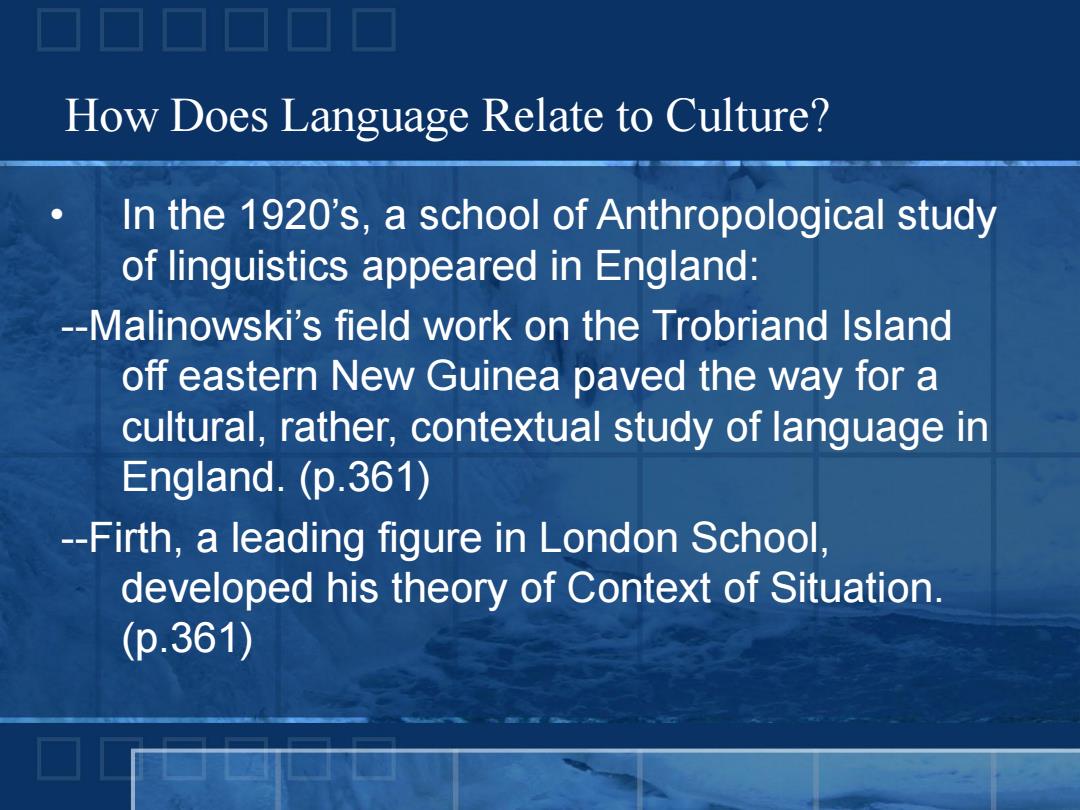
How Does Language Relate to Culture? In the 1920's,a school of Anthropological study of linguistics appeared in England: --Malinowski's field work on the Trobriand Island off eastern New Guinea paved the way for a cultural,rather,contextual study of language in England.(p.361) --Firth,a leading figure in London School, developed his theory of Context of Situation. (p.361)
How Does Language Relate to Culture? • In the 1920’s, a school of Anthropological study of linguistics appeared in England: --Malinowski’s field work on the Trobriand Island off eastern New Guinea paved the way for a cultural, rather, contextual study of language in England. (p.361) --Firth, a leading figure in London School, developed his theory of Context of Situation. (p.361)
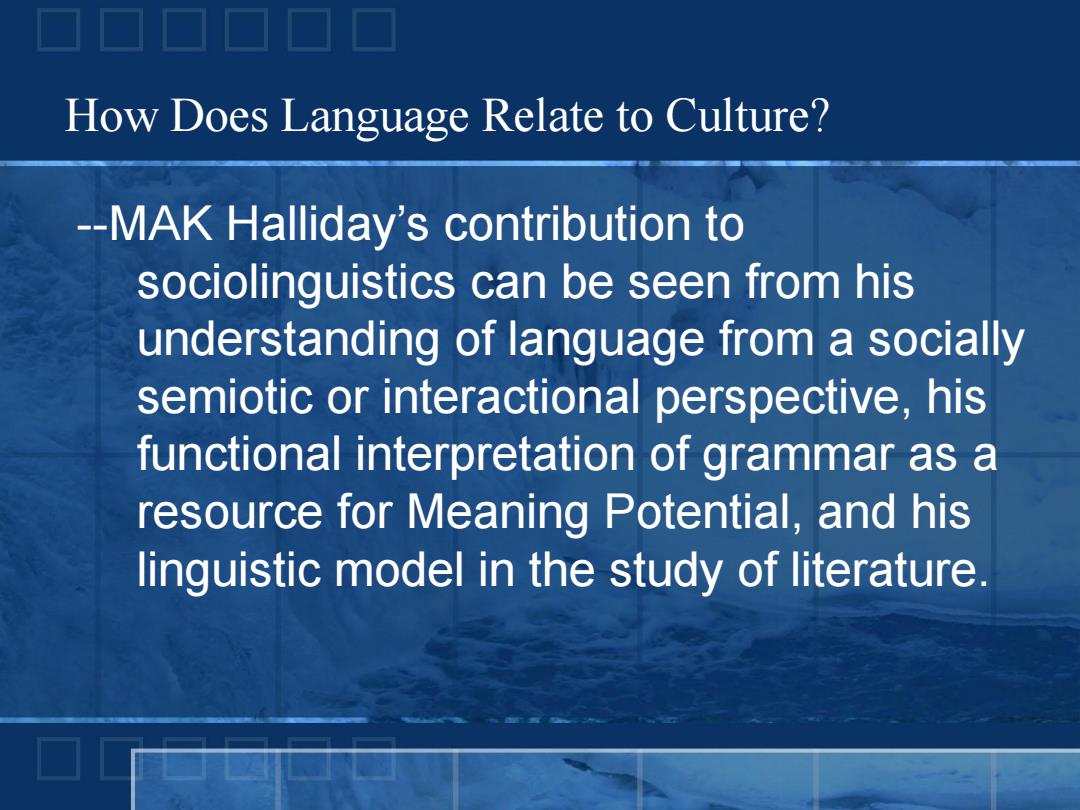
How Does Language Relate to Culture? --MAK Halliday's contribution to sociolinguistics can be seen from his understanding of language from a socially semiotic or interactional perspective,his functional interpretation of grammar as a resource for Meaning Potential,and his linguistic model in the study of literature
How Does Language Relate to Culture? --MAK Halliday’s contribution to sociolinguistics can be seen from his understanding of language from a socially semiotic or interactional perspective, his functional interpretation of grammar as a resource for Meaning Potential, and his linguistic model in the study of literature
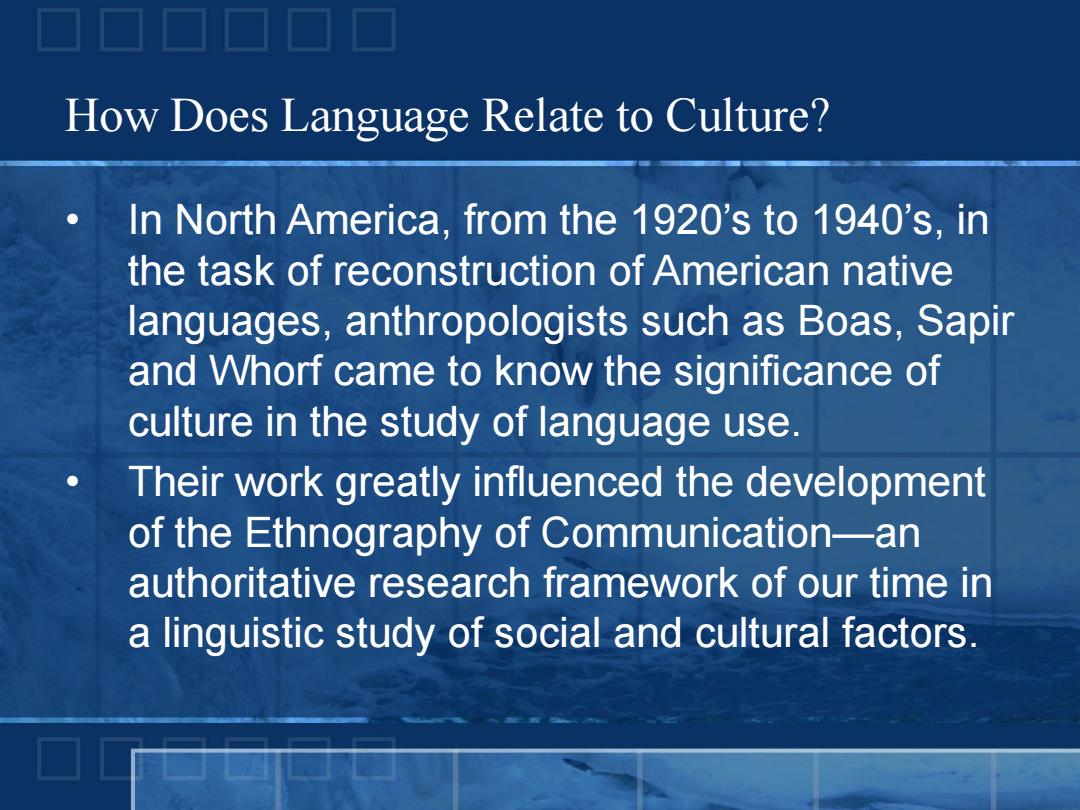
How Does Language Relate to Culture? In North America,from the 1920's to 1940's,in the task of reconstruction of American native languages,anthropologists such as Boas,Sapir and Whorf came to know the significance of culture in the study of language use. Their work greatly influenced the development of the Ethnography of Communication-an authoritative research framework of our time in a linguistic study of social and cultural factors
How Does Language Relate to Culture? • In North America, from the 1920’s to 1940’s, in the task of reconstruction of American native languages, anthropologists such as Boas, Sapir and Whorf came to know the significance of culture in the study of language use. • Their work greatly influenced the development of the Ethnography of Communication—an authoritative research framework of our time in a linguistic study of social and cultural factors
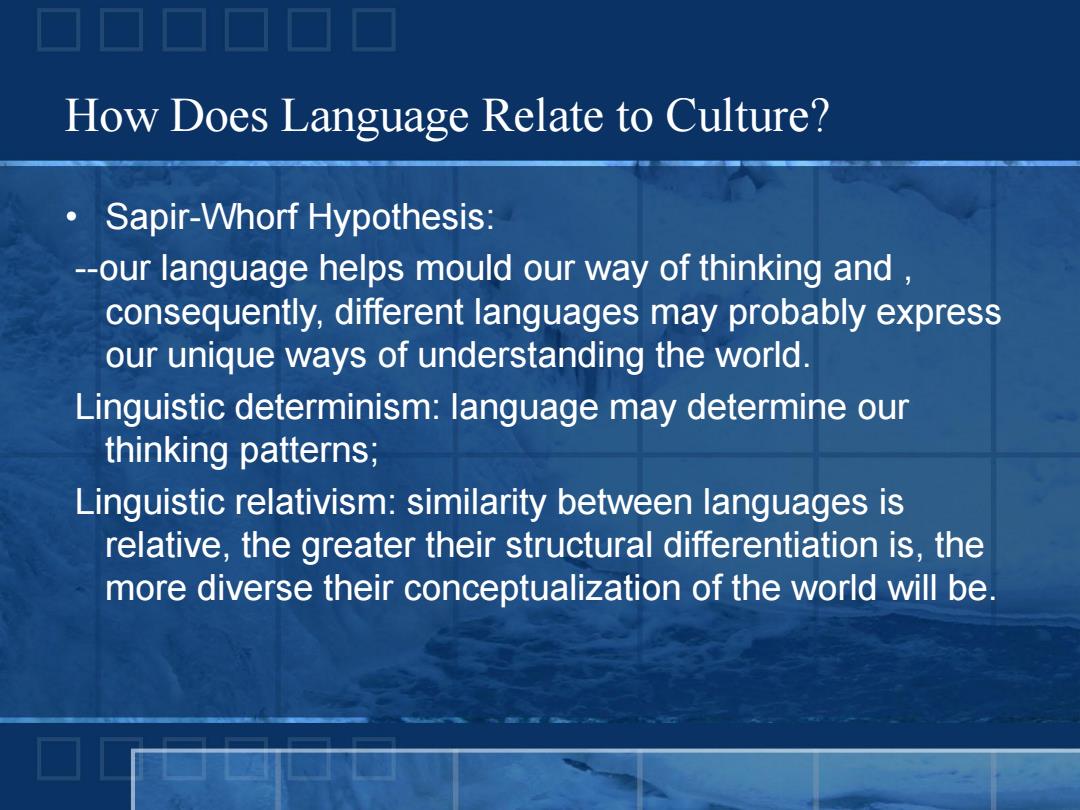
How Does Language Relate to Culture? Sapir-Whorf Hypothesis: --our language helps mould our way of thinking and consequently,different languages may probably express our unique ways of understanding the world. Linguistic determinism:language may determine our thinking patterns; Linguistic relativism:similarity between languages is relative,the greater their structural differentiation is,the more diverse their conceptualization of the world will be
How Does Language Relate to Culture? • Sapir-Whorf Hypothesis: --our language helps mould our way of thinking and , consequently, different languages may probably express our unique ways of understanding the world. Linguistic determinism: language may determine our thinking patterns; Linguistic relativism: similarity between languages is relative, the greater their structural differentiation is, the more diverse their conceptualization of the world will be
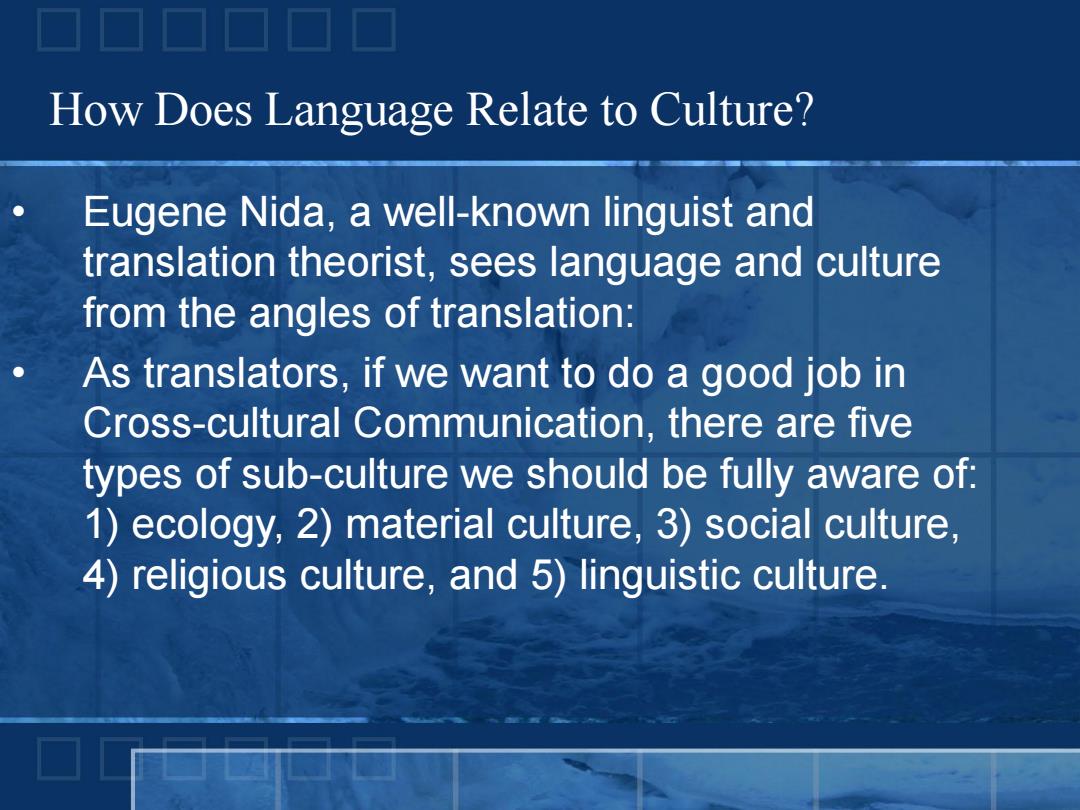
How Does Language Relate to Culture? Eugene Nida,a well-known linguist and translation theorist,sees language and culture from the angles of translation: As translators,if we want to do a good job in Cross-cultural Communication,there are five types of sub-culture we should be fully aware of: 1)ecology,2)material culture,3)social culture, 4)religious culture,and 5)linguistic culture
How Does Language Relate to Culture? • Eugene Nida, a well-known linguist and translation theorist, sees language and culture from the angles of translation: • As translators, if we want to do a good job in Cross-cultural Communication, there are five types of sub-culture we should be fully aware of: 1) ecology, 2) material culture, 3) social culture, 4) religious culture, and 5) linguistic culture